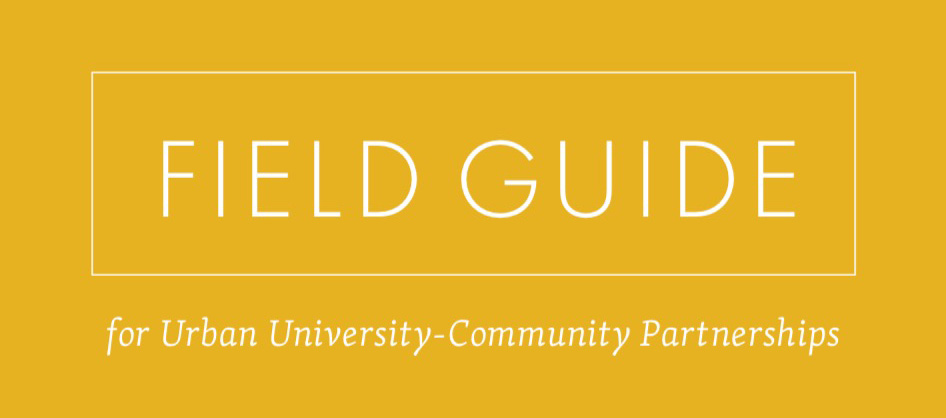The University of Virginia’s Thriving Cities Lab, an initiative under the Institute for Advanced Studies in Culture, has released a “Field Guide for Urban University-Community Partnerships.” It highlights the need for more collaborations between universities and their cities to include community members in the leadership and development of joint projects and initiatives.
Over the past three decades, American universities and colleges have witnessed a surge in activities oriented around their civic and social purposes. From the signing of the first Campus Compact Action Statement in 1985, which today includes over 1,000 university members, to the establishment of the Coalition of Urban and Metropolitan Universities in 1989, which now serves over 90 universities and colleges, to the establishment of the Community Outreach Partnership Center by the U.S. Department of Housing and Urban Development in the 1990s, to the creation of the Carnegie Classification Elective on Community Engagement in the mid-2000s, what began as a revival of civic purpose and public service among institutions of higher education has evolved into a burgeoning movement of university-community partnerships nationwide. This Field Guide is intended to advance the growing field and practice of university-community partnerships in two immediate and timely ways:
- It seeks to provide the first survey of the field through a scan of 100 urban universities and colleges. To our knowledge, this is the only survey of its kind that is national in scope, and which provides a composite picture of the field today and where it is trending in the near future.
- This Field Guide also seeks to offer a framework and methods by which individual universities and colleges can track the progress of the field, compare learning across institutions, and distill best practices for their own work in university-community partnerships. In this way, the Field Guide seeks to complement a range of capacity-building resources that already exist by offering a stepwise opportunity for practitioners to locate themselves within the field of their peers, discern a best next step for their institutions and communities, and connect with the resources they need to be successful
Beyond mere academic interest, the Field Guide is intended to be a ready resource for those interested in strengthening their home institution’s commitment to and practice of university-community partnerships, as well as for those working to deepen and expand the impact of the field as a whole.
Read and download the full report
An article in The Chronicles of Higher Education discusses the report’s key points:
Sign up for updates
Explore Themes and Ideas































































